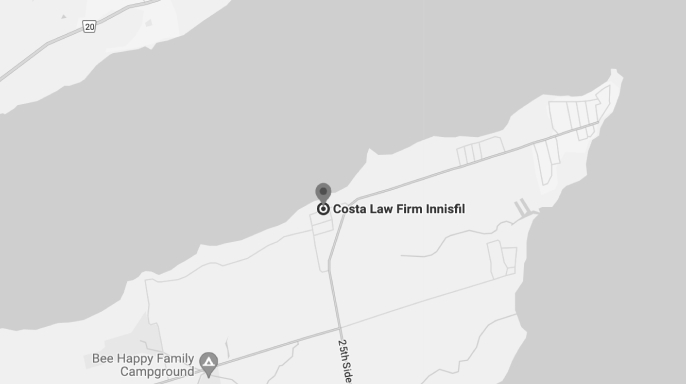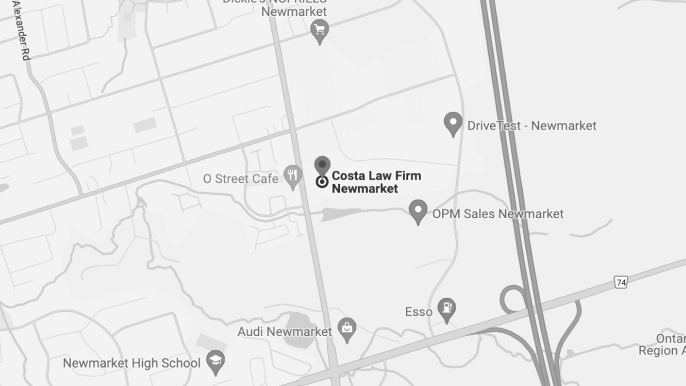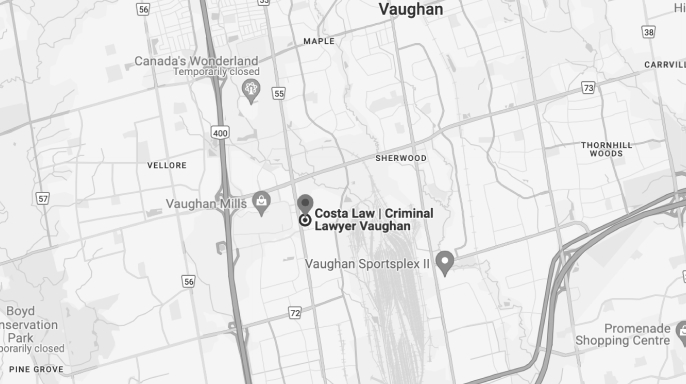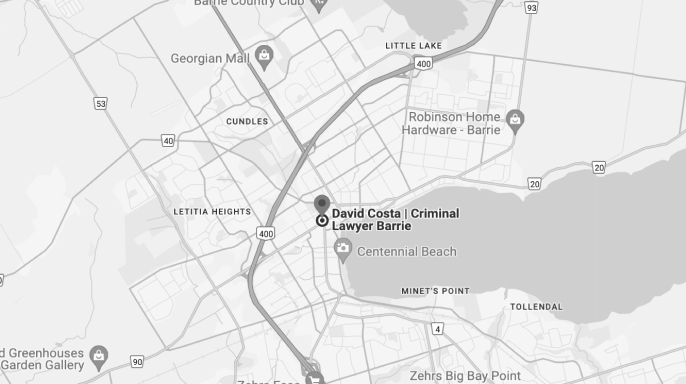Domestic Assault Lawyer Toronto: Strategic Defence for Domestic Violence Charges
In Ontario, domestic assault allegations draw a lot of attention from the criminal justice system, court, Crown, and law enforcement authorities. A single phone call to the police officers accusing you of intimate partner violence can lead to a ripple effect of disastrous events with irreversible consequences – jail time, criminal charges, the prospect of a stained criminal record, not to mention mounting legal bills.
Our experienced criminal lawyer at Costa Law will tell you that this is just the beginning. We know first-hand how domestic violence allegations can disrupt your life and your relationship with your loved ones.
Regardless of how long you and your spouse have been intimate partners or how minor the allegations are, once you are charged with domestic assault, a barrage of arrows will aim at your heart long before conviction.

Protecting Your Rights with a Domestic Abuse Lawyer Toronto
The consequences of domestic violence allegations can be far-reaching. For instance, bail conditions often ban contact between you and the other spouse. This makes reconciliation impossible. You (the accused person) may be ordered to stay away from your family home, even if it is your name written in the property’s lease or title deed. If you have children, the Children’s Aid Society may get involved. This adds a mountain of stress to your ordeal.
It takes a deep understanding of family law and criminal law to develop an effective defence strategy for domestic assault cases. Our domestic violence lawyers understand the unique interplay of the criminal code and human emotion in domestic violence cases. We will combine skill, persuasion, knowledge, and strength to ensure you get the best possible outcome.
Our law firm has knowledgeable domestic assault lawyers Toronto who have represented hundreds of defendants across Toronto. We know first-hand how domestic assault laws and policies translate into seemingly mere arrests, then hard evidence, and eventually stressful court cases.
If you are accused of sexual assault or any form of domestic violence, contact us early enough. We will defend you and protect your rights. Also, we will work tirelessly to ensure you get a favourable outcome with the guidance of a domestic assault Attorney.

Understanding Domestic Assault Charges with a Criminal Defence Perspective
According to Section 265 (1) of the Canadian Criminal Code, an individual commits assault when, without the consent of the other party, applies force intentionally. Also, an attempt or threat, by actions or gestures, to apply force may be considered an assault.
Similarly, if the accused person made the complainant believe on reasonable grounds that the accused has present ability to effect their purpose, it constitutes assault. The force may be direct or indirect.
Examining Section 265 of the Criminal Code, which describes common domestic assault charges, you will see this offence has three basic elements. The Crown must prove that you intentionally applied force to the other person without their consent.
If our domestic violence lawyer can raise a reasonable doubt concerning these elements, that will be enough for you to be acquitted at a court trial.
Note that actual physical contact isn’t always necessary to establish domestic assault. S.265 (b) highlights situations where the accused may attempt or threaten to apply force or make the complainant believe, on a reasonable ground, the accused can do so. Here are different domestic assault offences.
Domestic Assault Causing Bodily Harm
Domestic assault offences encompass a range of charges, each carrying its legal implications and potential penalties. One such offence is domestic assault causing bodily harm. It is commonly referred to as “ABH” or “Assault Level II.”
This charge arises when an assault results in notable injury to the victim. While minor injuries may result in lesser charges, more serious injuries like black eyes or significant lacerations typically lead to serious charges.
The maximum penalties for domestic assault causing bodily harm include 10 years if prosecuted by indictment and 18 months by summary conviction. However, these penalties can vary depending on the unique circumstances of each case and may have ancillary consequences beyond the initial legal proceedings.
Domestic Assault with a Weapon
Another type of domestic assault offence is domestic assault with a weapon, which involves the use or attempted use of a weapon during domestic abuse. The definition of a “weapon” under the Canadian Criminal Code is broad.
It encompasses anything used or intended to cause harm, injury, or intimidation. This expansive definition sometimes results in seemingly trivial items being classified as weapons, leading to potentially unfair prosecutions.
The maximum penalties for domestic assault with a weapon are also 10 years if prosecuted by indictment and 18 months by a summary conviction. However, the seriousness of this offence can vary greatly depending on the circumstances.
Aggravated Domestic Assault
The most serious form of domestic assault is aggravated assault. This offence is also known as “maiming,” “torture,” or “Assault Level III.” This charge is reserved for the most serious cases involving significant injuries or a risk to human life.
To establish aggravated assault, the prosecution must prove that the assault resulted in severe injury, disfigurement, or endangered the victim’s life.
Aggravated Assault carries a maximum penalty of fourteen years in jail and can only be prosecuted by indictment. That means the Crown attorney cannot opt for a summary conviction. Being found guilty of this indictable offence often results in incarceration, even for first-time offenders, due to its severity.
Our team of experienced lawyers can assess your charges to ensure they are classified correctly under the law. If the elements of the offence are not proven beyond a reasonable doubt, we can vigorously advocate for your innocence and push for an acquittal.
With our dedicated legal representation, you can navigate the complexities of a domestic violence case and protect your rights throughout the legal process.
Other Consequences of Domestic Assault Conviction
Penalties for a criminal charge involving domestic violence vary depending on factors such as the nature of the offence and the circumstances of the offender. With our legal help, you can fully understand your potential criminal liability.
Our lawyers have a proven track record of handling criminal cases successfully. Whether you are charged with domestic assault, sexual assault, or any other domestic violence offence, we can help.
While a conviction for domestic violence carries the likelihood of harsh penalties, being charged does not automatically result in a criminal record. Many domestic violence cases are resolved outside of court through discussions between defence counsel and the Crown prosecutor.
Peace Bond
For less severe offences involving domestic violence, we can effectively negotiate with the Crown attorney for a Peace Bond. If granted, a Peace Bond requires compliance with specific terms for one year. These terms may include no contact with the complainant, no possession of prohibited weapons, and adherence to probation and court directives.
Signing a Peace Bond will result in the withdrawal of the domestic violence charges against you. That means you will have a clean criminal record. Most importantly, agreeing to a Peace Bond does not imply you are guilty of the domestic violence allegations.
If a Peace Bond is not available, our legal team can explore alternative sentencing options with the Crown. These options may include arrangements that result in no criminal record or impose minimal restrictions on liberty post-sentencing.
Depending on the nature of your case, we can negotiate a lighter sentence. Remember, alternative sentencing options may not be available for serious crimes like severe physical abuse, child abuse, aggravated sexual acts, and more.
Navigating domestic violence charges requires skilled legal representation to protect your rights and pursue the most favourable outcome. Contact our domestic violence lawyer to discuss your family violence case and explore available defence strategies with a domestic abuse defence lawyer.
Defending Domestic Assault Charge with a Domestic Assault Attorney
At Costa Law, we know that each domestic violence case presents unique circumstances, and the most effective defence strategy will hinge on the specifics of the alleged domestic abuse.
Our team of dedicated lawyers is well-versed in various defence strategies and is committed to protecting your rights throughout the legal process. Here are some of the defence options we may use:
Factual Innocence
One of the strongest defences against domestic violence charges is factual innocence. This defence asserts that the alleged abuser was not present at the scene of the alleged domestic abuse, did not commit the act of violence, or that the evidence does not support the accusations.
Our lawyers will analyze the facts and evidence surrounding the case to build a compelling defence on your behalf. With a thorough understanding of the nuances of your case, we will work tirelessly to demonstrate your innocence and obtain a favourable outcome.
Violation of Your Constitutional Rights
The Canadian Charter of Rights and Freedoms guarantees certain rights to individuals, including those facing criminal charges. If law enforcement officials fail to adhere strictly to these rights during the arrest or investigation process, we can use that information to strengthen your defence. After all, evidence acquired through a breach of this charter of rights may be inadmissible in court.
Our lawyers carefully review the actions of the police during arrests and investigations to identify any violations of constitutional rights. By leveraging these violations, we can undermine the prosecution’s case and protect your rights throughout the legal proceedings.
Consent
In cases where physical force is alleged, we can use the defence of consent. The burden lies with the Crown prosecutor to prove beyond a reasonable doubt that the alleged victim did not consent to the application of force by the accused. However, it’s essential to note that consent to bodily harm is not recognized under Canadian law.
Despite this limitation, our experienced lawyers thoroughly analyze the circumstances surrounding the alleged spousal assault to determine the applicability of the consent defence.
Through strategic legal arguments and thorough preparation, we seek to cast doubt on the prosecution’s case and advocate for your innocence.
Self-Defence
Self-defence is a fundamental defence strategy in domestic assault cases. It asserts that reasonable force was used to protect oneself against an unlawful assault without the intent to cause death or grievous bodily harm.
Our lawyers will thoroughly evaluate the circumstances surrounding the alleged assault to determine if self-defence applies. With a nuanced understanding of self-defence laws, we work diligently to demonstrate that your actions were taken to protect yourself and were not disproportionate or reckless.
This is possible if there is no aggravating factor like a prior criminal conviction, a restraining order filed against you, or other aggravating factors. Indeed, we can delve deep into your peaceful relationship with your current or former spouse or common-law partner to show that you have no history of domestic violence.
Defending Someone Else
Similarly, defending someone else from an unlawful attack is a valid defence strategy in domestic assault cases. Reasonable force or the threat of force can be used to protect another individual, provided there was no intent to cause death or grievous bodily harm.
Our lawyers will meticulously assess the evidence to establish the legitimacy of defending another person. With a steadfast dedication to protecting your rights, we advocate for your innocence when acting in defence of a family member, like your child.
Defending Property
While defending property may be a weaker defence in many situations, it remains a viable strategy in certain domestic assault cases. Reasonable force or the threat of force can be used to protect property.
However, the applicability of this defence depends on the specific circumstances of the offence. Our lawyers will use a strategic approach to assess the feasibility of defending property as a defence strategy and diligently pursue the most favourable outcome for your case.
Accident
If the alleged assault was accidental and unforeseeable, it should not lead to a criminal conviction. Our lawyers will analyze the circumstances surrounding the incident to demonstrate that the assault was truly accidental and could not have been reasonably anticipated.
With a comprehensive understanding of accident defence strategies, we work tirelessly to protect your rights and advocate for a favourable resolution. Remember, we may need to present supportive evidence to show that the alleged criminal offence was an accident.
Our team of dedicated lawyers understands the complexities of domestic violence cases and is committed to employing the most effective defence strategies tailored to your specific situation.
Whether asserting self-defence, defending someone else, or exploring other defence strategies, we will tirelessly advocate for your rights and work towards achieving the best possible outcome for your case.
Why You Need a Domestic Assault Lawyer Toronto Near Me
A conviction for a domestic violence offence carries severe consequences that can have lasting repercussions on your reputation and future opportunities. In such dire circumstances, the assistance of an experienced domestic violence lawyer is indispensable.
A skilled lawyer helps minimize the consequences of an arrest and helps navigate the complexities of the legal system to obtain the most favourable resolution for your case. Therefore, if you are accused of intimate partner violence, you need a lawyer. Here is why:
A Domestic Assault Case is Adversarial
If your intimate partner has accused you of physical assault and psychological abuse in a domestic context, you will face a criminal prosecution. The Crown is the complainant, and you become the defendant.
Keep in mind that the alleged victim does not have the authority to drop the charges once they have been filed. Instead, it is the Crown prosecutor who assumes the responsibility of prosecuting you based on the facts of the case.
In this adversarial legal setting, your domestic violence defence lawyer plays a pivotal role in conducting an independent investigation, scrutinizing the facts, and presenting your side of the story.
Even in high-profile cases where prominent individuals or even lawyers are accused of domestic violence or other criminal allegations, it is common practice for them to retain separate legal representation. The reason behind this decision lies in the inherent difficulty of effectively advocating for oneself in the context of a criminal proceeding.
Negotiating a resolution for your domestic violence case necessitates the skillfulness of a lawyer with extensive local experience dealing with the Crown prosecutor and judges overseeing your case.
This local insight is invaluable in determining the most effective approach to achieving a favourable outcome.
Build Your Defense Case
It’s technically possible to represent yourself in a criminal domestic violence case. However, doing so without prior experience in court procedures and a deep understanding of the Criminal Code can leave you vulnerable.
Engaging the services of a domestic violence lawyer provides a significant advantage. This is because you benefit from the competence of an experienced advocate capable of coordinating the collection of evidence.
A lawyer can swiftly obtain discovery materials from the Crown, including crucial documents such as police reports and witness statements. These foundational pieces of information form the cornerstone of your defence strategy.
Additionally, there may be evidence, such as emergency calls, police bodycam footage, or video surveillance, that must be preserved through immediate court action. An experienced lawyer can take the necessary steps to ensure the collection and preservation of evidence that could support your defence.
It’s not uncommon for police reports to contain inaccuracies, exaggerated information, or outright falsehoods. In such cases, collaboration with a private investigator may be necessary to gather recorded statements from witnesses and set the record straight.
Representing You in Court
Navigating the courtroom environment can be daunting and overwhelming, especially for individuals unfamiliar with legal proceedings. Having a trusted and experienced advocate by your side can make a significant difference in the outcome of your case.
Contact Our Domestic Assault Lawyer in Toronto | Domestic Assault Lawyer Near Me
If you’re facing domestic charges of assault in Toronto, seeking legal help and support from an experienced domestic assault lawyer Near Me is essential. Our lawyers have a track record of success handling domestic cases and understand the sensitive nature of these allegations. We work swiftly to protect your rights, challenge weak evidence, and aim for the best possible resolution—whether that means withdrawal of charges, peace bond agreements, or a vigorous defence at trial. Reach out today for a confidential consultation.
FAQs
1. Should I consult with a Domestic Assault Lawyer Toronto the moment that I am arrested?
Absolutely. Early intervention by legal professionals may affect bail conditions, the preservation of evidence, or an avenue of defence.
2. Can a domestic abuse lawyer Toronto assist in avoiding a criminal record?
Yes. Before a trial takes place, many of the cases are resolved successively through peace bonds, withdrawals, or alternative means.
3. What does the domestic attorney do after charges are laid?
They will review disclosure, contest the evidence, and negotiate with the Crown prosecutor.
4. Is it important to hire a domestic assault lawyer near me?
Yes. A lawyer with experience in a local court who knows the prosecutors in Toronto can change the outcome of the case.
5. Will a domestic abuse defense lawyer challenge false allegations?
Yes. Inconsistencies, credibility issues with the accuser, and breaches of the Charter could all be very viable defenses.
Request A Consultation
Testimonials
What our clients are saying
Contact Us
Costa Law Firm
Costa Law Firm is a law firm located in Toronto with exceptional credentials that stands out for its commitment to client service. Our service minded approach has led Costa Law Firm to be one of the most reliable law firms in Toronto.
Address
Main Office:
1015 Bloor Street West, Toronto, Ontario M6H 1M1
Phone: (416) 535-6329
Fax: 416-535-4735
info@costalawfirm.ca
We provide emergency services for urgent matters.
Consultation Office:
17075 Leslie St Unit 6, Newmarket, ON L3Y 8E1Vaughan location 290 Caldari Rd Unit 8, Concord, ON L4K 4J4, CanadaBarrie location 49 High St 3rd floor, Barrie, ON L4N 5J4, Canada











